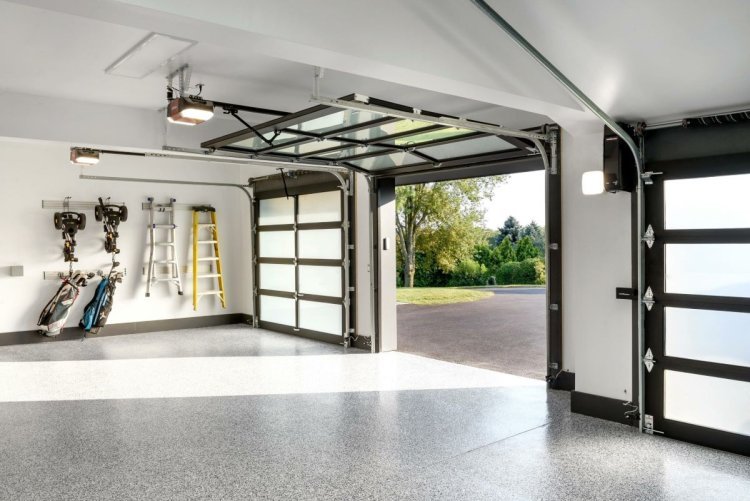Benefits and Comparison of Epoxy Floor Coating Basements
Discover the ultimate guide to epoxy floor coating basements. Learn about the advantages of durability, moisture resistance, and aesthetic versatility.

Choosing the right flooring for basement areas is pivotal due to the unique environmental challenges these spaces present, such as moisture and temperature fluctuations. Epoxy floor coating basement emerges as a standout solution, specially designed to withstand such conditions. Its durability, resistance to moisture, and aesthetic versatility make epoxy floor coating an ideal choice for enhancing and protecting your basement space.
Why Choose Epoxy Floor Coating Basement?
Epoxy floor coatings are renowned for their longevity and ability to resist wear, making them a cost-effective flooring solution for basements. This resilience is particularly beneficial in spaces that are prone to high traffic, heavy usage, and the storage of heavy items. Key attributes include:
- Exceptional Strength: Once cured, epoxy coatings form a hard, protective surface that can withstand considerable impact without damage, preserving the integrity of your basement floor over the years.
- Resistance to Abrasion: Epoxy floors are not easily scratched or dented, which is vital in areas used for storage or workshops.
- Seamless and Impermeable Finish: The seamless nature of epoxy flooring means there are no joints or seams where moisture can penetrate, significantly reducing the risk of mold and mildew growth.
Benefits of Epoxy Floor Coating in Handling Basement-Specific Issues
Basements often encounter unique environmental challenges that other parts of a home might not, such as higher moisture levels and potential water infiltration. Epoxy coatings offer several advantages in managing these issues:
- Moisture Resistance: Epoxy coatings create an impenetrable barrier, preventing water and moisture from seeping through the floor. This quality is especially important in basements, where moisture can lead to mold, mildew, and other water-related damage.
- Easy to Clean and Maintain: The smooth surface of epoxy flooring makes it simple to clean spills, dust, and debris, which is beneficial in a basement environment that may be more prone to moisture and dirt accumulation.
- Adaptability to Humid Conditions: Epoxy coatings can handle the fluctuating humidity levels typical of basement areas without deteriorating, peeling, or cracking, ensuring a durable and long-lasting finish.
Comparing Epoxy Floor Coating to Other Flooring for Basements
When selecting flooring for a basement, homeowners typically consider several common options, including carpet, laminate, vinyl, and tile. Each has its benefits and drawbacks, particularly when faced with the unique environment of a basement.
Carpet
- Comfort: Carpeting offers a warm, soft surface underfoot, which can make basements feel cozier.
- Insulation: It provides good insulation, helping to regulate the temperature.
- Drawbacks: Carpets are highly susceptible to moisture and mold, making them a less-than-ideal option in basements prone to dampness.
Laminate
- Aesthetic Appeal: Laminate flooring can mimic the look of hardwood or tile at a fraction of the cost.
- Durability: It is resistant to scratches and wear and is suitable for high-traffic areas.
- Moisture Sensitivity: Despite its durability, laminate is not waterproof and can warp or swell with moisture exposure, a common issue in basements.
Vinyl
- Water Resistance: Vinyl is excellently water resistant, making it a better choice for basements than laminate or carpet.
- Ease of Installation: It can often be installed directly over concrete without a subfloor.
- Variability in Quality: The quality of vinyl flooring can vary significantly, with some cheaper options being less durable over time.
Tile
- Waterproof: Ceramic and porcelain tiles are waterproof, making them suitable for damp basement conditions.
- Maintenance: The tile is easy to clean and resistant to most stains and water damage.
- Cold and Hard Underfoot: Tile can be uncomfortable to stand on for long periods and may require additional heating in colder climates.
Why Epoxy Floor Coating Often Comes Out on Top
Epoxy floor coating basement holds several advantages over these traditional basement flooring options, positioning it as the superior choice for many homeowners:
- Overall Durability: Epoxy’s resistance to impact, abrasion, and chemicals surpasses that of carpet, laminate, vinyl, and even some tile, ensuring a long-lasting surface.
- Moisture and Mold Resistance: Unlike carpet or laminate, which can absorb moisture and harbor mold, epoxy creates an impenetrable barrier.
- Ease of Maintenance: Epoxy floors' seamless surface makes them easier to clean and maintain than tile grout lines, laminate seams, or carpet fibers.
- Aesthetic Versatility: Epoxy can be customized with colors, patterns, and effects that can mimic other materials or create unique and attractive finishes not achievable with other flooring types.
- Cost-Effectiveness: Considering its longevity and low maintenance requirements, epoxy offers a high value for its cost, especially compared to the ongoing maintenance and eventual replacement required for other flooring options.
Final Thoughts
Choosing the right flooring for a basement can significantly affect your home's functionality and aesthetic appeal. Epoxy floor coating emerges as a leading option for those seeking a solution that combines durability, moisture resistance, easy maintenance, and aesthetic versatility. When considering flooring for basement renovations or updates, epoxy stands out for its ability to handle the unique challenges basements often present, including higher moisture levels, heavy usage, and the need for a long-lasting, resilient surface.
What's Your Reaction?











![Wireless Connectivity Software Market Size, Share | Statistics [2032]](https://handyclassified.com/uploads/images/202404/image_100x75_661f3be896033.jpg)



